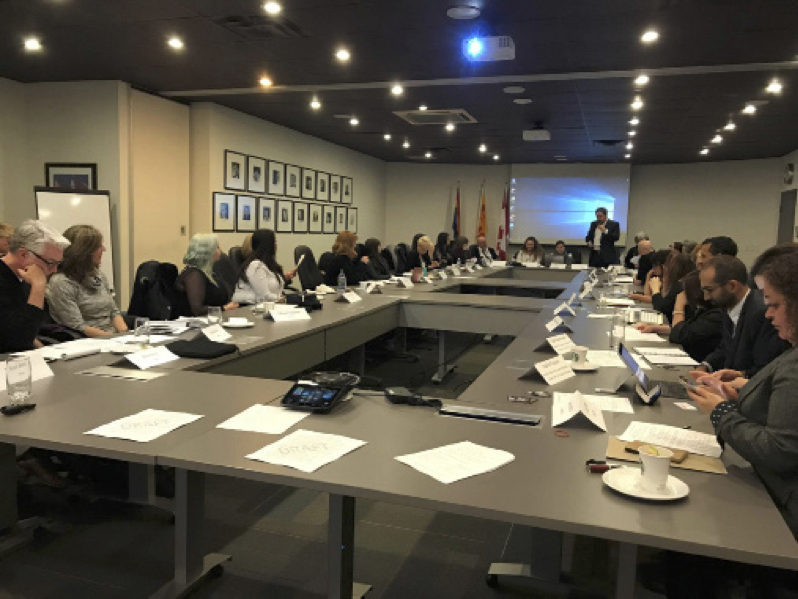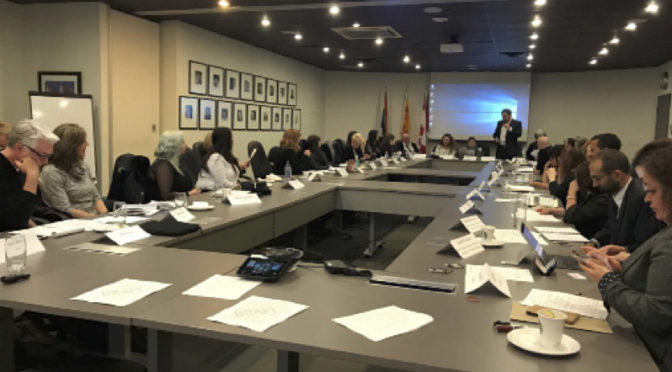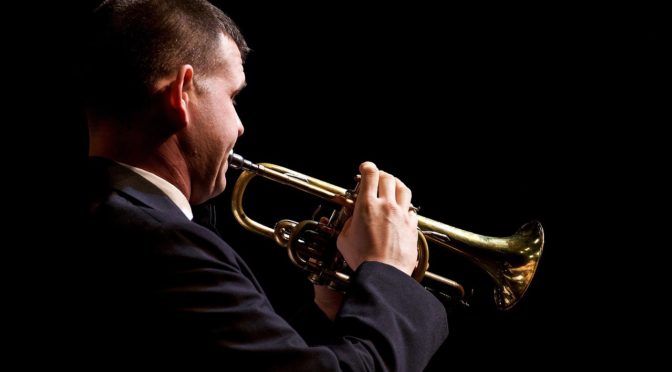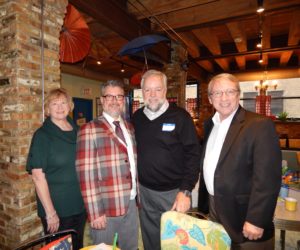On March 1, the Canadian Federation of Musicians launched the first Canadian Music Industry Anti-Harassment Summit in Toronto. Canadian Heritage Minister Mélanie Joly addressed the Summit via Skype. Joly and Canadian Heritage support the goals of the meeting body and will look to us to set policy that Heritage can endorse and help us to enforce against victimizers.

The Canadian Federation of Musicians hosted a harassment summit on March 1. Many music industry representatives gathered in the ACTRA boardroom, while others joined by teleconference.
Also in attendance at the summit were representatives from the Office of the Minister of Canadian Heritage and Heritage Department of Music Policy and Programs, Canadian Academy of Recording Arts and Sciences (CARAs)/JUNO Awards, East Coast Music Association, Canadian Actors Equity Association, Alliance of Canadian Cinema, Television and Radio Artists (ACTRA) Toronto, ACTRA RACS, Canadian Music Publishers Association, Screen Composers Guild of Canada, Toronto Arts Council, Music Canada, Musicians Rights Organization Canada, Songwriters Association of Canada, Women in Music Canada, and more.
The goal of the summit, according to AFM/CFM Executive Director Liana White was to work together to create an industry-wide policy against harassment in work and performance places, to protect ourselves, our colleagues, and our audiences. CFM’s mission statement includes treating each other with respect and dignity without regard to ethnicity, creed, sex, age, disability, citizenship, sexual orientation, marital status, family status, or national origin.
The Ontario Occupational Health and Safety Act (OHSA), which is recognized as having the highest standards and therefore can be applied in all provinces, defines workplace harassment, including sexual harassment, as “engaging in a course of vexatious comment or conduct against a worker in a workplace that is known, or ought reasonably to be known, to be unwelcome.”
It can include:
- Remarks, jokes, and innuendos that ridicule, intimidate, or offend
- Verbal, physical, psychological abuse
- Exclusionary behavior
- Displaying or circulating offensive pictures or materials in any form
- Stalking
CFM members need to have a safe and respectful work environment, whomever they work with and wherever they work.





